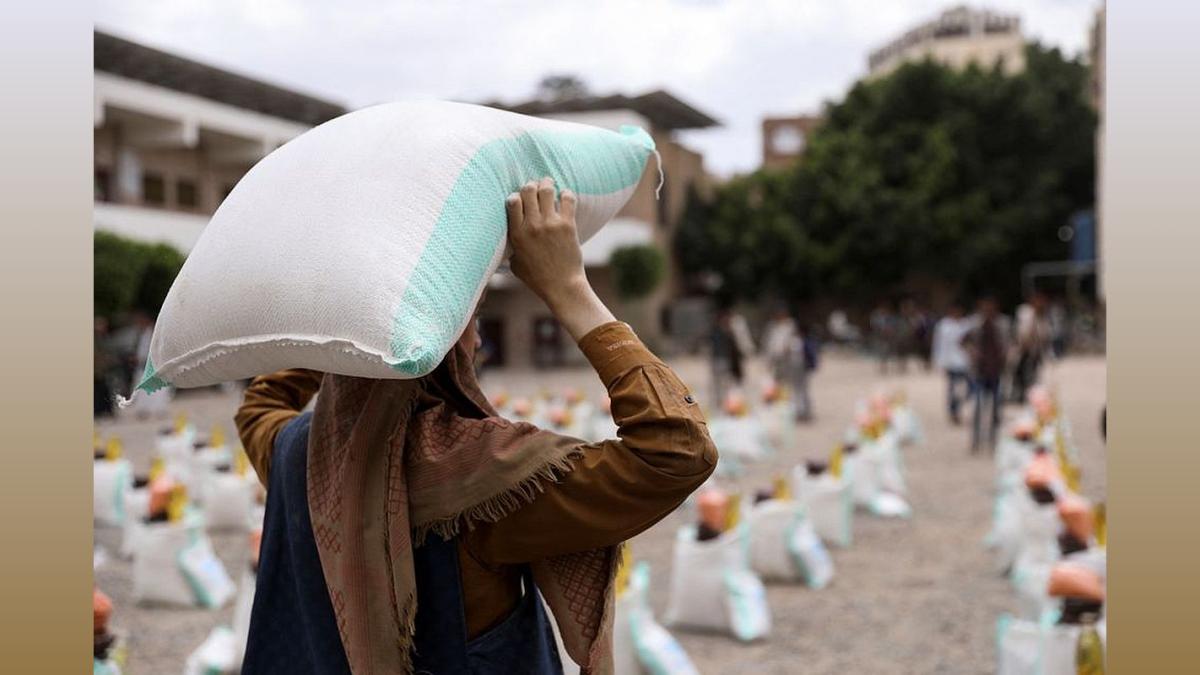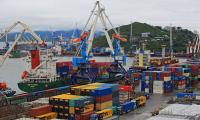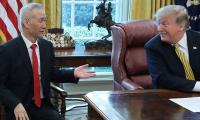India Pushes for WTO Food Stockholding Solution at Feb Meet
India urges fast-tracking talks on public stockholding for food security at the WTO ministerial meeting in February, but some countries oppose the move.

Photograph: Khaled Abdullah/Reuters
New Delhi, Jan 17 (PTI) India has asked WTO members to fast-track talks on finding a permanent solution on the public stockholding for food security issue at the ministerial-level meeting of the WTO in February, but some countries differ on this, an official said.
The issue was discussed at a WTO (World Trade Organisation) agriculture negotiations meeting held on January 16.
In the meeting, the US stated that "given members' deeply divergent views", a permanent solution for public stockholding for food security purposes by the 13th Ministerial Conference (MC) is "not possible", the Geneva-based official said.
The MC is the highest decision-making body of the Geneva-based global trade watchdog WTO. The 13th MC meeting is scheduled for next month in Abu Dhabi.
In its presentation, India stated that the public stock-holding (PSH) has to be dealt with separately on a "fast track mode and emphasized that it has to be delivered at MC13", the official added.
According to the officials, the US has stated that India's push for a standalone PSH outcome or prioritizing this issue before others "has not worked."
Certain developed countries are of the view that the Bali MC decision (of 2013) has enabled India to become the biggest rice exporter.
They allege that food stocks bought at government-administered prices (normally higher than market prices) are trade-distortive subsidies and must be addressed within the overall agriculture negotiation framework.
India has time and again pitched for finding a permanent solution to the issue.
Due to the acute food insecurity crisis in many corners of the world, there was a strong sentiment among members that any package on agriculture at MC13 should have an outcome of food security at its core.
However, many fear that the current fragmentation in the PSH issue might risk yielding no results on the food security issue and agriculture as a whole.
With MC13 fast approaching (26-29 February), members were asked to brainstorm on realistic outcomes for the PSH issue at MC13 and how to achieve them during the meeting.
India has earlier dismissed arguments for alternative food security solutions beyond PSH (public stock holding) and SSM (special safeguard mechanism) and believes that market access and export restrictions are not worth the effort.
As part of the solution, India has pitched for the need to recalculate the external reference prices to reflect the impact of inflation and other economic factors on food stock prices.
New Delhi has also asked for things like amendments in the formula to calculate the food subsidy cap and inclusion of programmes implemented after 2013 under the ambit of 'Peace Clause'.
As an interim measure, the WTO members at the Bali ministerial meeting in December 2013 had agreed to put in place a mechanism popularly called Peace Clause and committed to negotiating an agreement for a permanent solution.
Under the Peace Clause, WTO members agreed to refrain from challenging any breach in the prescribed ceiling by a developing nation at the dispute settlement forum of the WTO.
This clause will stay till a permanent solution is found to the food stockpiling issue.
Under global trade norms, a WTO member country's food subsidy bill should not breach the limit of 10 per cent of the value of production based on the reference price of 1986-88.
Subsidies over and above the prescribed ceiling are seen as trade distorting. The limit is fixed at 10 per cent of the value of food production for developing countries like India.
India has earlier informed the World Trade Organisation that it has used the peace clause to provide excess support measures to rice farmers for marketing year 2020-21, in order to meet the domestic food security needs of its poor population.
The Geneva-based 164-member multi-lateral body deals with global exports and import-related norms. Besides, it adjudicates trade disputes between the member countries.
At the 12th ministerial conference in Geneva in 2022, despite making progress on the food security front, members were unable to arrive at an agreement on the agriculture reform work plan.
The issue was discussed at a WTO (World Trade Organisation) agriculture negotiations meeting held on January 16.
In the meeting, the US stated that "given members' deeply divergent views", a permanent solution for public stockholding for food security purposes by the 13th Ministerial Conference (MC) is "not possible", the Geneva-based official said.
The MC is the highest decision-making body of the Geneva-based global trade watchdog WTO. The 13th MC meeting is scheduled for next month in Abu Dhabi.
In its presentation, India stated that the public stock-holding (PSH) has to be dealt with separately on a "fast track mode and emphasized that it has to be delivered at MC13", the official added.
According to the officials, the US has stated that India's push for a standalone PSH outcome or prioritizing this issue before others "has not worked."
Certain developed countries are of the view that the Bali MC decision (of 2013) has enabled India to become the biggest rice exporter.
They allege that food stocks bought at government-administered prices (normally higher than market prices) are trade-distortive subsidies and must be addressed within the overall agriculture negotiation framework.
India has time and again pitched for finding a permanent solution to the issue.
Due to the acute food insecurity crisis in many corners of the world, there was a strong sentiment among members that any package on agriculture at MC13 should have an outcome of food security at its core.
However, many fear that the current fragmentation in the PSH issue might risk yielding no results on the food security issue and agriculture as a whole.
With MC13 fast approaching (26-29 February), members were asked to brainstorm on realistic outcomes for the PSH issue at MC13 and how to achieve them during the meeting.
India has earlier dismissed arguments for alternative food security solutions beyond PSH (public stock holding) and SSM (special safeguard mechanism) and believes that market access and export restrictions are not worth the effort.
As part of the solution, India has pitched for the need to recalculate the external reference prices to reflect the impact of inflation and other economic factors on food stock prices.
New Delhi has also asked for things like amendments in the formula to calculate the food subsidy cap and inclusion of programmes implemented after 2013 under the ambit of 'Peace Clause'.
As an interim measure, the WTO members at the Bali ministerial meeting in December 2013 had agreed to put in place a mechanism popularly called Peace Clause and committed to negotiating an agreement for a permanent solution.
Under the Peace Clause, WTO members agreed to refrain from challenging any breach in the prescribed ceiling by a developing nation at the dispute settlement forum of the WTO.
This clause will stay till a permanent solution is found to the food stockpiling issue.
Under global trade norms, a WTO member country's food subsidy bill should not breach the limit of 10 per cent of the value of production based on the reference price of 1986-88.
Subsidies over and above the prescribed ceiling are seen as trade distorting. The limit is fixed at 10 per cent of the value of food production for developing countries like India.
India has earlier informed the World Trade Organisation that it has used the peace clause to provide excess support measures to rice farmers for marketing year 2020-21, in order to meet the domestic food security needs of its poor population.
The Geneva-based 164-member multi-lateral body deals with global exports and import-related norms. Besides, it adjudicates trade disputes between the member countries.
At the 12th ministerial conference in Geneva in 2022, despite making progress on the food security front, members were unable to arrive at an agreement on the agriculture reform work plan.
You May Like To Read
TODAY'S MOST TRADED COMPANIES
- Company Name
- Price
- Volume
- Vodafone-Idea-L
- 11.65 (+ 3.56)
- 106772451
- Alstone-Textiles
- 0.28 ( -3.45)
- 44187760
- Mangalam-Industrial
- 0.88 ( -2.22)
- 39177573
- Sunshine-Capital
- 0.27 (+ 3.85)
- 35956340
- GMR-Airports
- 104.40 (+ 6.37)
- 30453005






